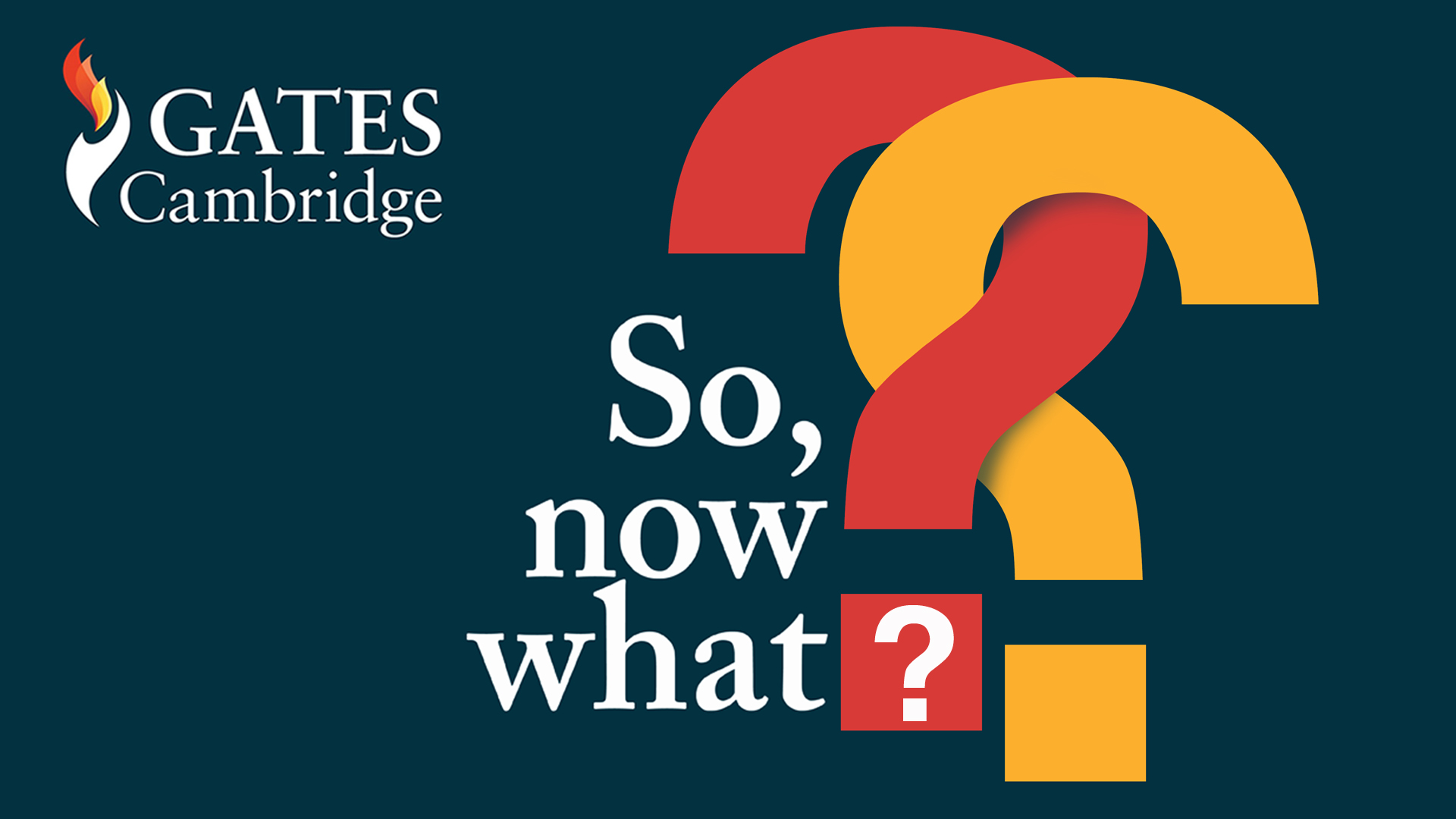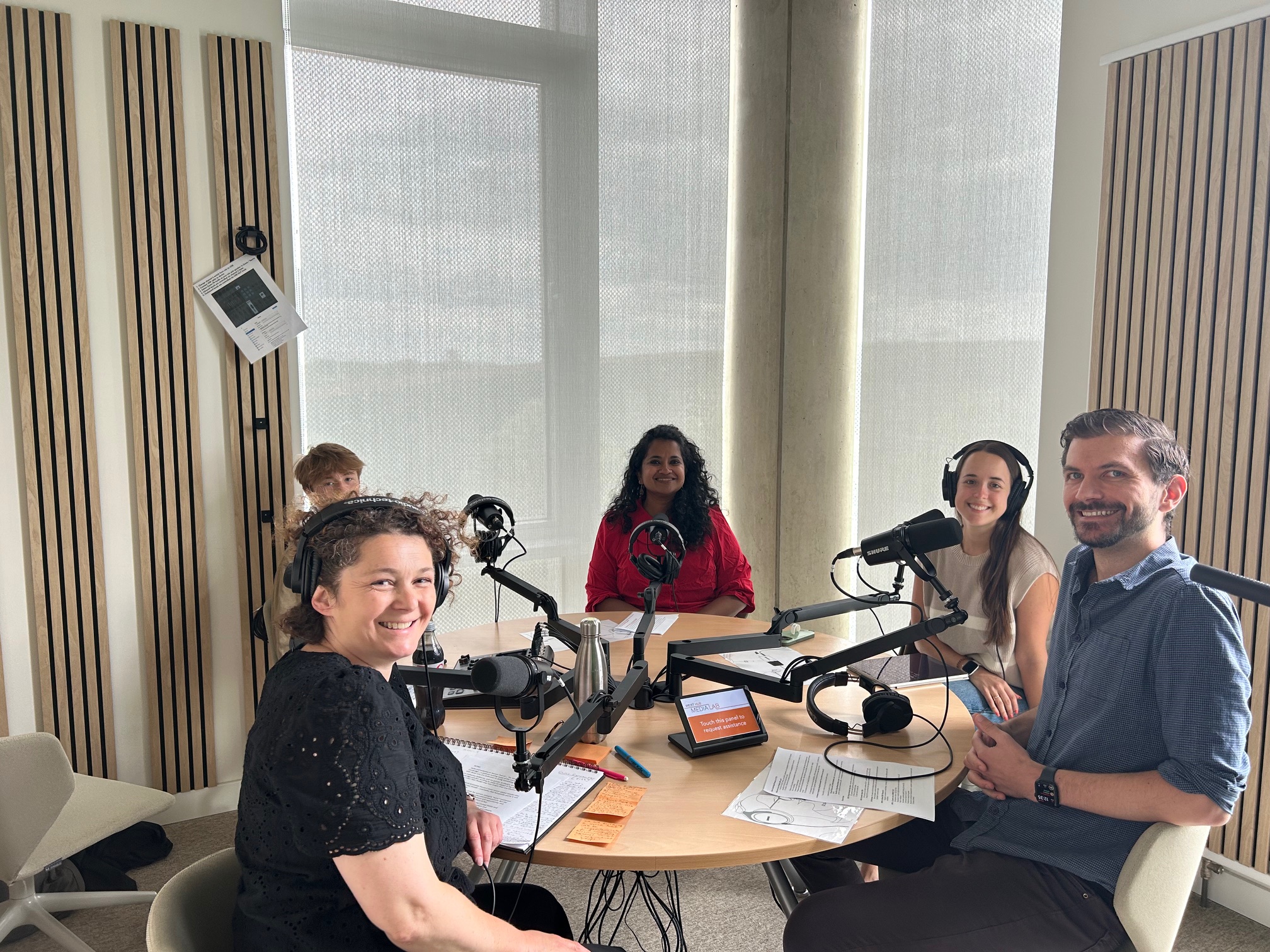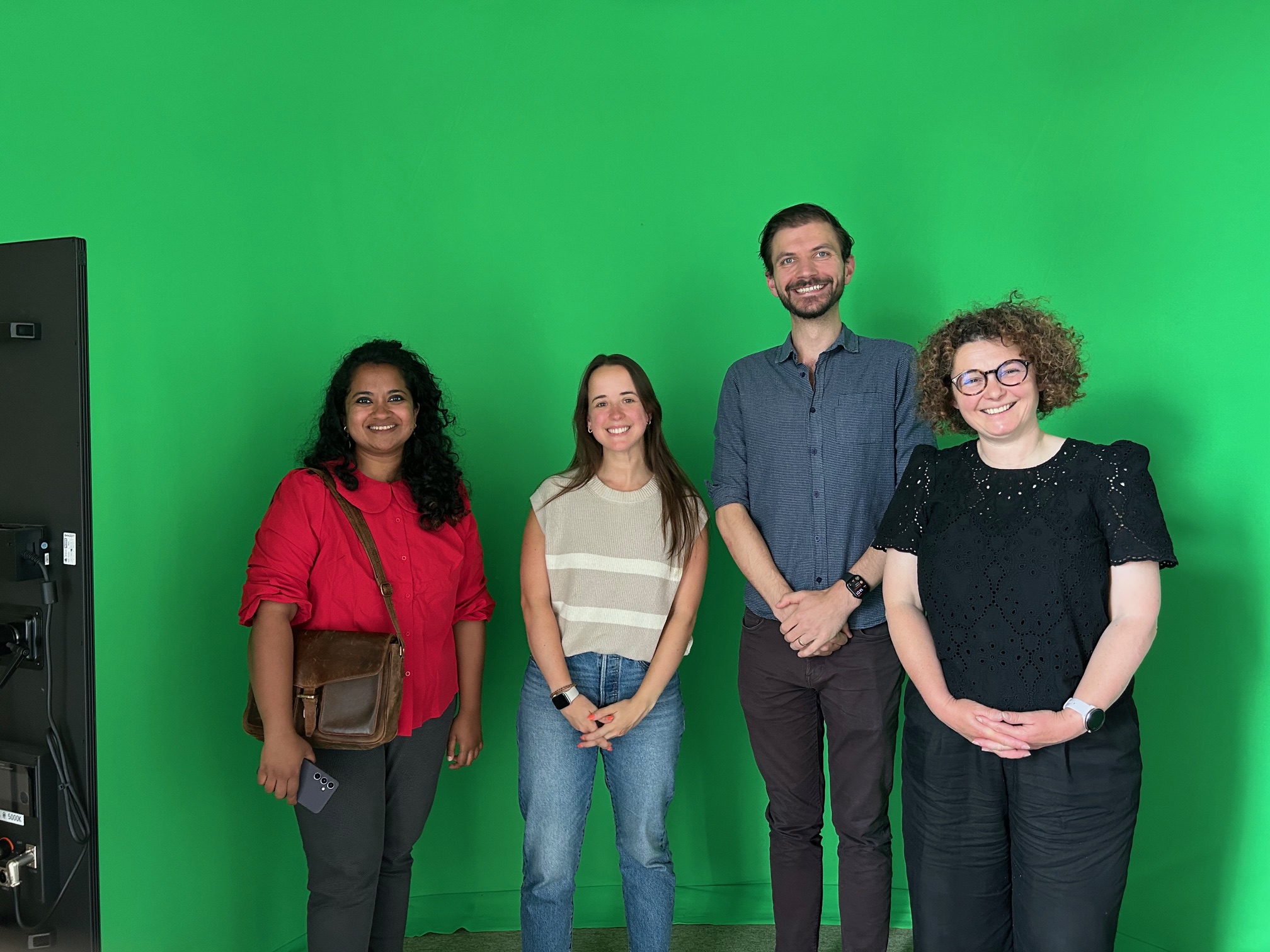
Three Gates Cambridge Scholars debate whether gender equality is going backwards in the second last episode of the second series of So, Now What?
Three Gates Cambridge Scholars debated whether gender equality is going backwards in the seventh episode of the current series of the ‘So Now What’ podcast.
Reetika Subramanian [2019], William McInerney [2018] and Christine Carpenter [2024] explored the multifaceted challenges of gender equality, focusing on personal stories, the impact of recent legal changes and the intersection of climate change and child marriage. They spoke of how gender equality can at the same time be advancing and regressing and of how fragile progress is. And they debated the significant challenges facing drives for equality, including the rise of the so-called manosphere, anti-abortion crackdowns in the US and the use of technology to police women, and the impact of climate change on child marriage in India.
The conversation, recorded at the University of Cambridge’s Digital Media Lab at West Hub, highlighted the importance of storytelling in shaping narratives around gender issues and the need for men to engage actively in the fight for equality. Presenter Catherine Galloway noted that full gender parity is still reported to be over 123 years away and that women in many countries have fewer rights than previous generations. The speakers highlighted the need to protect spaces for dialogue and dissent and for more data on women’s issues and they said that gender equality is good for everyone.
Speaker bios
 Reetika, who is a Senior Research Associate at the University of East Anglia, has recently been selected as a BBC New Generation Thinker and is working with Radio 4 on a show called ‘Songs of the Storm’, exploring women’s work songs (pounding songs, fishing songs, farming songs) around the world as climate archives. Her current research and storytelling primarily focus on the intersections of gender and climate, particularly through her multimedia project, Climate Brides. This project grew out of her doctoral research and began in 2021 while she was conducting fieldwork in western India. Using multimedia tools, she has been documenting how climate change is intensifying the drivers of child marriage in these communities. Climate Brides is currently supported by Cambridge Reproduction.
Reetika, who is a Senior Research Associate at the University of East Anglia, has recently been selected as a BBC New Generation Thinker and is working with Radio 4 on a show called ‘Songs of the Storm’, exploring women’s work songs (pounding songs, fishing songs, farming songs) around the world as climate archives. Her current research and storytelling primarily focus on the intersections of gender and climate, particularly through her multimedia project, Climate Brides. This project grew out of her doctoral research and began in 2021 while she was conducting fieldwork in western India. Using multimedia tools, she has been documenting how climate change is intensifying the drivers of child marriage in these communities. Climate Brides is currently supported by Cambridge Reproduction.
One of the central aims of the project is to create accessible, multilingual resources – such as the Climate Brides map – that can serve grassroots organisations and feminist collectives working on the ground. The project also runs the Climate Brides podcast, which explores these issues in greater depth through conversations and storytelling.
William is a peacebuilding consultant and researcher with 15 years of experience working with NGOs, universities and governments around the world. He specialises in leading projects on education, gender and storytelling that advance peace in critical, practical and creative ways. His recent work includes projects with the Fiji and UK governments, University of Cambridge, University of Bristol, and the London School of Economics. He also works as a Senior Research Fellow at the Men’s Story Project, a civil society organisation that specialises in creative approaches to engaging men and boys in gender equality and promoting healthy masculinities.
Prior to his PhD in Education at Cambridge, William co-founded and directed an arts and peace education organisation in the US, developed and taught university men’s violence prevention programs and led international storytelling projects documenting revolutions, conflicts and crises. William is also an award-winning spoken word poet and the author and editor of multiple books and articles.
 Christine is an international lawyer from the US and PhD candidate in International Relations & Politics. Her research focuses on digital surveillance and data protection in the FemTech industry. Motivated to pursue this research following the overturning of Roe v. Wade in the US in June 2022, she sought to harness her experience as a litigator and researcher at the intersection of law and technology to build a project aimed at investigating the burgeoning global data economy surrounding FemTech, and how to protect the data ecosystem of FemTech products from misuse and abuse under the incentive structures created by legal regimes hostile to reproductive freedoms.
Christine is an international lawyer from the US and PhD candidate in International Relations & Politics. Her research focuses on digital surveillance and data protection in the FemTech industry. Motivated to pursue this research following the overturning of Roe v. Wade in the US in June 2022, she sought to harness her experience as a litigator and researcher at the intersection of law and technology to build a project aimed at investigating the burgeoning global data economy surrounding FemTech, and how to protect the data ecosystem of FemTech products from misuse and abuse under the incentive structures created by legal regimes hostile to reproductive freedoms.
Previously as a practising attorney, she worked at a global law firm, concentrating her practice on international arbitration and foreign sovereign litigation matters, and particularly on matters concerning issues of public international law. There, she maintained an active pro bono practice of matters concerning international human rights and international criminal law. This involved, for example, working with the Human Trafficking Legal Clinic to seek justice for migrant workers in diplomatic households in proceedings before the Inter-American Court of Human Rights and with the Center for Reproductive Rights in proceedings challenging Texas’ SB-8 abortion ban. She also assisted in the drafting of comments on the ICC’s policy guide for gender-based crimes with the PILPG, and supervised student research on the applicability of international law in cyberspace with Temple University Law School’s Institute for Innovation, Law & Technology.
The final episode in the current series will go live at the end of August and focuses on how we face the challenges of an ageing society. Speakers are Pradipta Biswas [2006], Riaz Moola [2014] and Julie Qiaojin Lin [2013].
Listen to the episode here.












